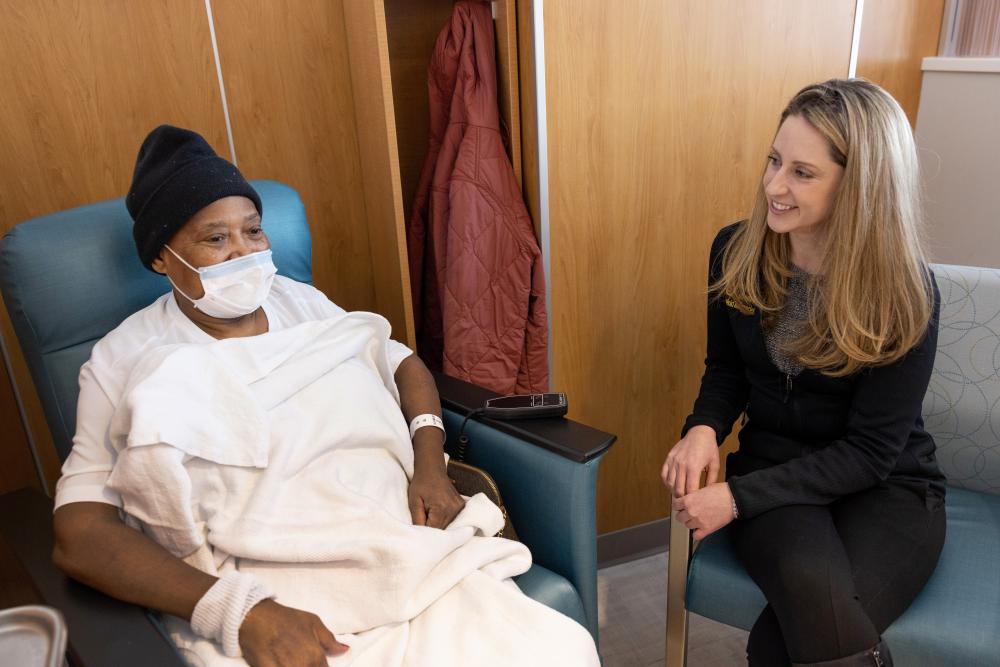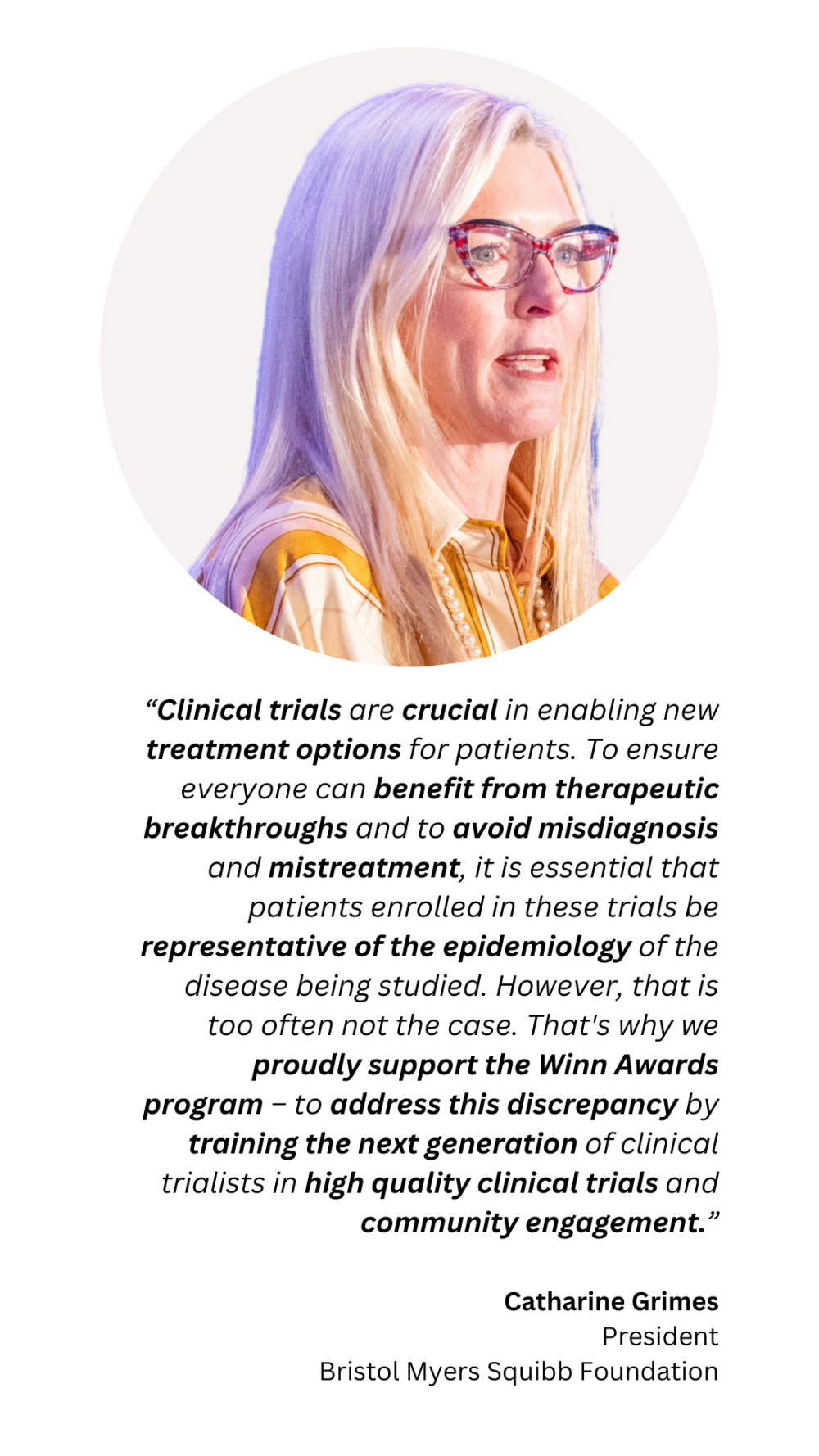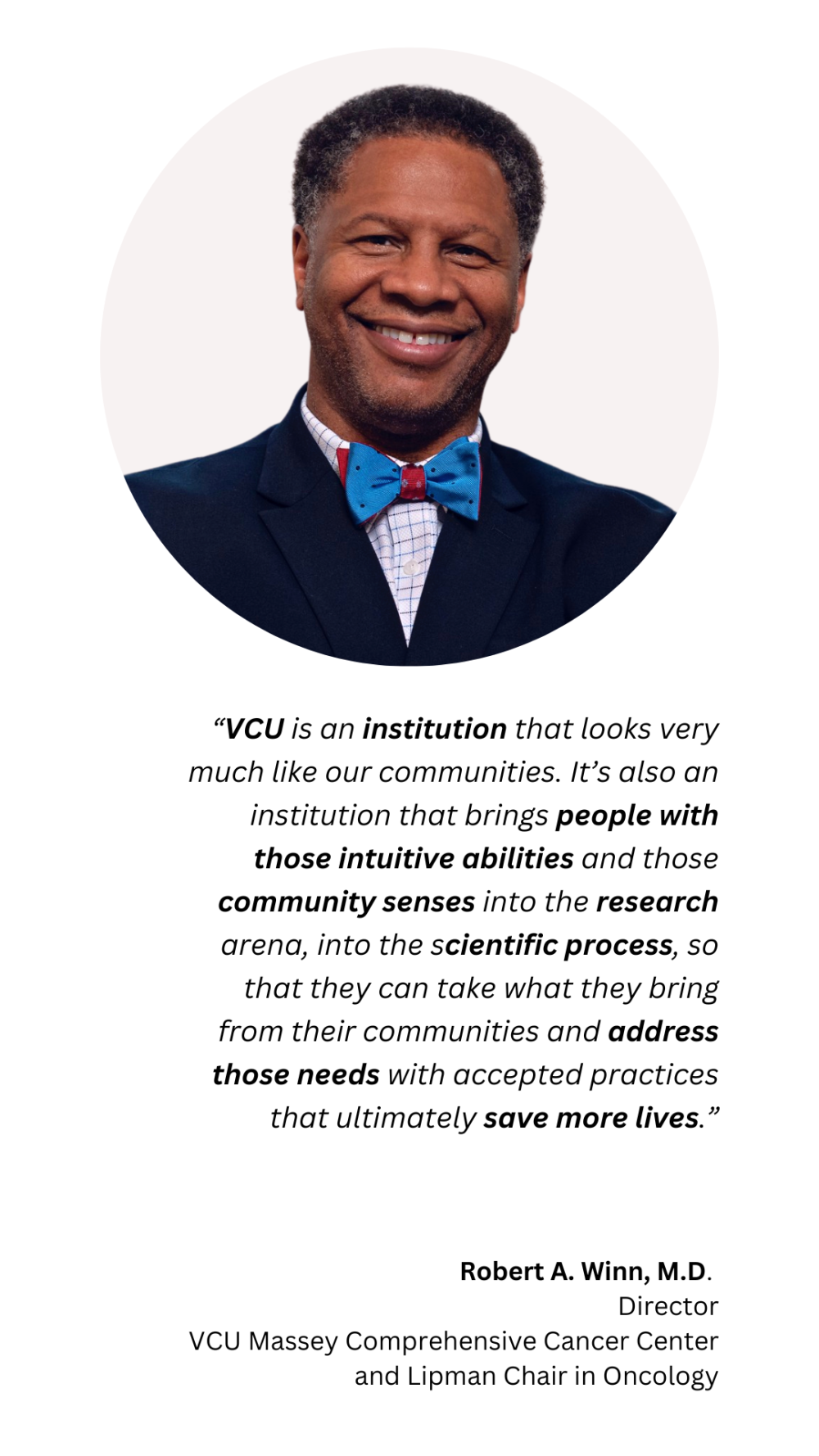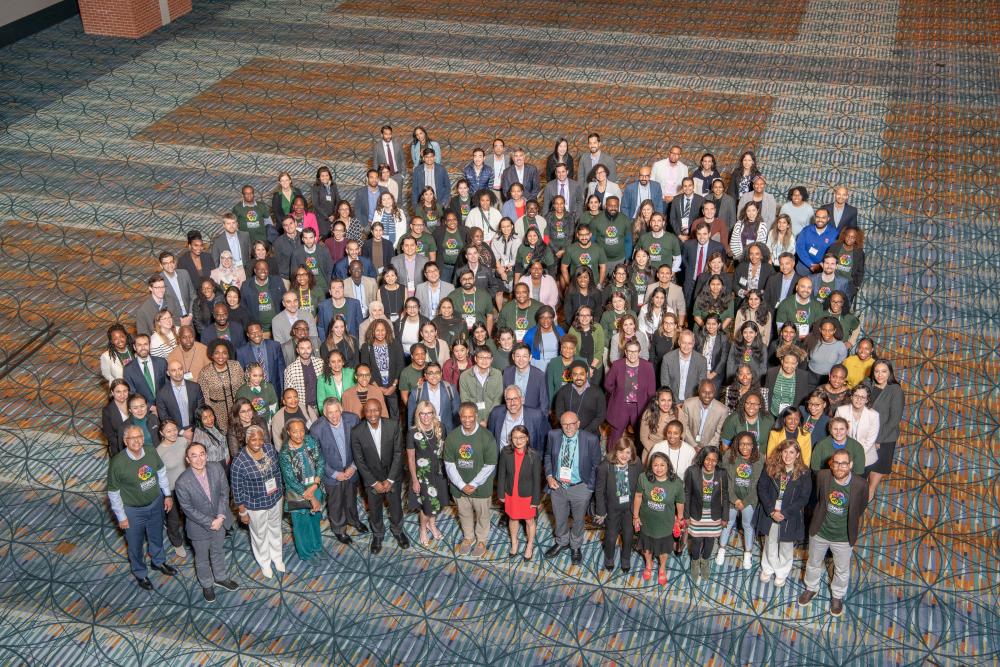Chasing Excellence in Clinical Trials
By Holly Prestidge
Keri Maher, D.O., was 19 years old when her world was rocked by an invisible force. Someone close to her was diagnosed with acute myeloid leukemia, or AML, a blood and bone marrow cancer commonly diagnosed in middle-aged and older adults.
As a young woman grappling with this sudden shock, Dr. Maher had no perspective on health care barriers or their impact. She only knew that from her rural California community, with its dirt roads, the nearest hospital was a 30-minute drive. Better-equipped treatment centers for AML, which progresses rapidly when untreated, were much farther away. Lack of coordination between the larger and the local hospitals only made things worse for the patient.

Ultimately, Dr. Maher lost someone she loved, in part because the right treatment wasn’t available in her rural community.
Today she’s focused on making sure others don’t suffer the same fate. Dr. Maher is a hematologist and clinical scientist in VCU Massey Comprehensive Cancer Center’s Developmental Therapeutics program. As director of the center’s Acute Leukemia and Myeloid Malignancies program, she sees treatment for acute leukemias through a much different lens.
THE WINN AWARDS
Dr. Maher is one of nearly 250 clinical investigators across the country who has received a Robert A. Winn Excellence in Clinical Trials Career Development Award, which is part of the larger Winn Excellence in Clinical Trials Award Program. The Winn Awards train, develop and mentor a national network of nearly 500 early-stage investigator physicians and medical students committed to improving participation in clinical trials. The Winn Awards began in 2020 with a $100 million commitment from the Bristol Myers Squibb Foundation, an independent chartiable organization.

 In April 2021, biopharmaceutical company Gilead Sciences joined as a funding partner, followed by biotech companies Amgen in 2022 and Genentech in 2024. Since 2023, the MCV Foundation has played a critical role in retaining, stewarding and supporting the Winn Awards. Through careful and deliberate stewardship of the grant, the MCV Foundation hopes to extend this partnership and program in the years to come.
In April 2021, biopharmaceutical company Gilead Sciences joined as a funding partner, followed by biotech companies Amgen in 2022 and Genentech in 2024. Since 2023, the MCV Foundation has played a critical role in retaining, stewarding and supporting the Winn Awards. Through careful and deliberate stewardship of the grant, the MCV Foundation hopes to extend this partnership and program in the years to come.
The Winn Awards are based at Massey under the direction of Robert A. Winn, M.D., the center’s director and Lipman Chair in Oncology. Dr. Winn is renowned for his ability to foster trust within communities that might have less knowledge and experience with clinical research, and at the time of his appointment in 2019, he was the only African American director of a National Cancer Institute-designated cancer center in the country. The Winn Awards program embodies his passion and commitment to improving participation of patients from all communities in clinical trials.
“Clinical trials are crucial in enabling new treatment options for patients. To ensure everyone can benefit from therapeutic breakthroughs and to avoid misdiagnosis and mistreatment, it is essential that patients enrolled in these trials be representative of the epidemiology of the disease being studied. However, that is too often not the case,” said Catharine Grimes, president of the Bristol Myers Squibb Foundation.
“That's why we proudly support the Winn Awards program – to address this discrepancy by training the next generation of clinical trialists in high quality clinical trials and community engagement. Through these efforts, the Winn Awards program is working to improve participation in clinical trials to drive better health outcomes for all communities.”
Dr. Winn emphasized VCU’s research prowess and the power of collaborative, multidisciplinary approaches to clinical research.
“VCU is an institution that looks very much like our communities,” he said. “It’s also an institution that brings people with those intuitive abilities and those community senses into the research arena, into the scientific process, so that they can take what they bring from their communities and address those needs with accepted practices that ultimately save more lives.”
REAL WORLD IMPLICATIONS
Since the program’s inception in 2020, the Winn Awards program has selected a new cohort of Winn Career Development Award scholars each year who will spend two years working in the program. Dr. Maher is in her second year.
She explained that curative treatment for acute leukemias often involves a bone marrow transplant — a long, intense treatment that can significantly reduce the rates at which patients relapse and ultimately extend their lives.
But it is only available to those who have the right insurance, around-the-clock caregiver support, the ability to take a year off work to go through treatment, and who can live within 30 minutes of the transplant center for the first several months after the transplant.
By intent, this program trains us to think in a different way, and to methodically tackle critical health needs in a multi-modal team-based approach that includes the communities themselves.
Keri Maher, D.O., assistant professor, VCU School of Medicine and Winn Award recipient
Compounding the issue is that some populations are already at a disadvantage because their genetic background is not an easy match for certain transplants due to lower participation in donor registries. For bone marrow or stem cell transplant to work, the human leukocyte antigen markers of the donor and patient must closely match. Without the transplant, median overall survival rates can be as short as a year after diagnosis.
“Donor availability is one obvious problem, but then there’s insurance, caregiver support, psychosocial support, transportation issues — all of these things are just challenges for many people and it’s just heartbreaking,” Dr. Maher said. “We watch these otherwise potentially curable folks end up relapsing and passing away because these challenges were too much to overcome.”
While awareness is vital, having tools to overcome those challenges is often where efforts fall short.
Dr. Maher said the Winn Career Development Award has given her the tools to take on those obstacles by teaching her protocol design, equity and engagement strategies, biostatistics and more, which she uses to design and identify clinical trials that promote access for all.
For example, she’s working with fellow VCU Health nurses to create a childcare program for parents who need it in order to seek treatment. She is growing a network of physician champions throughout Virginia from different health systems who can travel to remote and rural areas to help people who can’t get to acute leukemia clinics.
She’s working to find existing therapies that could prolong the lives of patients who are eligible for stem cell transplants but can’t get them because of any number of logistical issues.
Dr. Maher has been able to develop clinical trials that reach deeper into communities.
“Metrics do not explain the breadth and depth of change the Winn Awards program creates,” she said. “By intent, this program trains us to think in a different way, and to methodically tackle health care challenges in a multi-modal team-based approach that includes the communities themselves.”
Dr. Maher said the program has given her a seat at that table — even the head of the table, sometimes — that she would not have had otherwise.
“It has given me a voice,” she said, “which better enables me to give my patients a voice.”

If you are interested in learning more about how to support the Winn Awards, please contact Joy Jones, executive director of the program, by emailing winnawardinfo@vcu.edu.
Make a Difference
Support excellence in clinical trials.